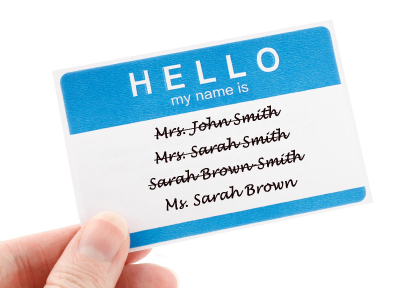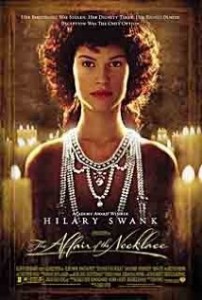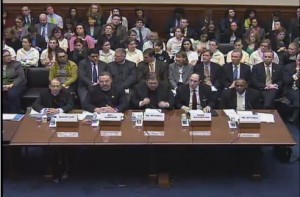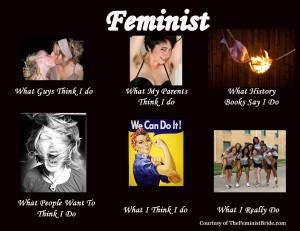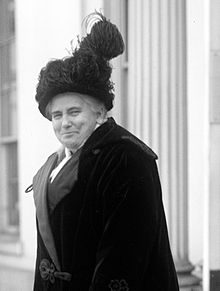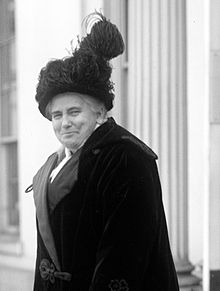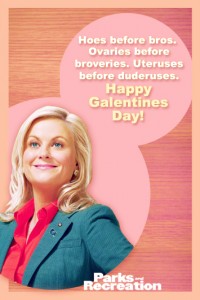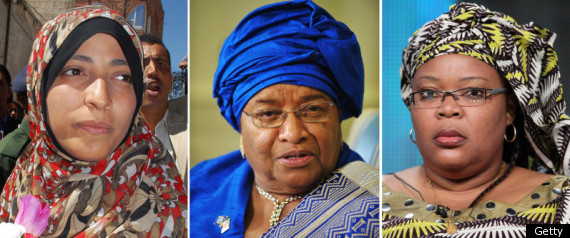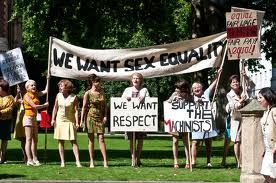Women’s Equality

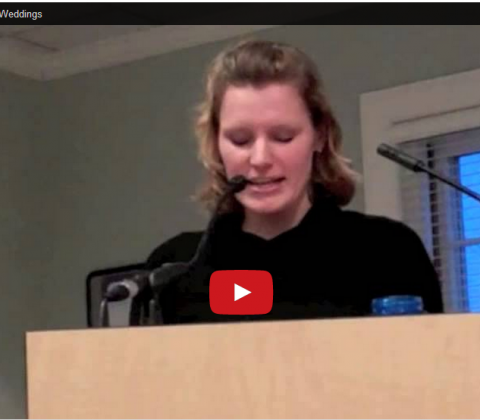
In saying, “I Do,” did you choose wisely?
Stonehill College was nice enough to invite me as the keynote speaker to a panel on gay marriage. As a Catholic school, it had just added anti-hazing based on one’s sexuality to its school charter; and given the recent US Supreme Court decision, same sex marriage was a hot topic on campus. I was joined by two professors one with a law background commenting on the recent US Supreme Court ruling and another who specialized in the gender issues and gay marriage. I decided to talk about choice feminism and how within a hetero framework, women who use the “freedom of choice” to justify patriarchal or socialized gender traditions perpetuate prejudice and discrimination in both sexual spheres. In my lecture, I asked that choice be made not just to the benefit of oneself, but keeping in mind the needs and welfare of others as choice is constraint by many systems, both seen and unseen, and therefore must be made wisely.
A special thanks to Stonehill College. The students and faculty were very welcoming, respectful and engaged; and I appreciate the opportunity to share my ideas and research.
Breaking the Rules Panel. April 2013
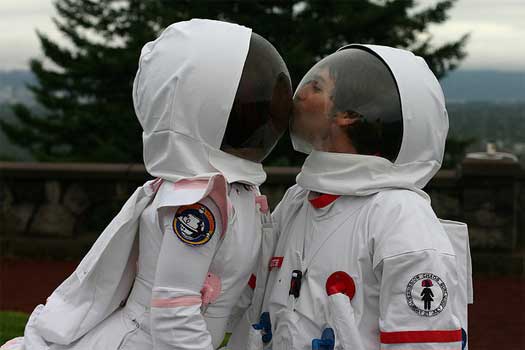

The Future of Marriage
In honor of the Supreme Court ruling today defending the legality and support of same-sex marriage,  I thought offering insight into the future of marriage would be a salient point. I’m thrilled that many same-sex couples in states that recognize gay marriage can now enjoy the same state and federal benefits hetero-couples do, and I hope that many of those in states behind the curve can start planning their own legal nuptials soon too. However, while today was a huge milestone there is still lots more to accomplish…for all sexual orientations. Everyone should keep marriage equality as their number one wish on their wedding registry.
I thought offering insight into the future of marriage would be a salient point. I’m thrilled that many same-sex couples in states that recognize gay marriage can now enjoy the same state and federal benefits hetero-couples do, and I hope that many of those in states behind the curve can start planning their own legal nuptials soon too. However, while today was a huge milestone there is still lots more to accomplish…for all sexual orientations. Everyone should keep marriage equality as their number one wish on their wedding registry.
In the meantime, I predict more scandalous celebrity marriages and divorces that will push the limits of conventional marriages (I’m looking at you Kardashians). Now with California, I foresee one highly publicized gay celebrity marriage sponsored by US Weekly that will help mitigate the fears of same-sex marriage, but also (unfortunately) perpetuate gay stereotypes. I envision a line of new wedding products designed by those briefly married celebrities. I foreshadow more diversity in the couples TLC wedding shows exploit. Rom-coms will continue to define its female lead’s value by the relationship she gets by the end of the movie. After all of this, I hope Hollywood will be a little more conscientious about how it treats marriage and those within it.
There are more positive things to predict though. I predict, like interracial marriage, gay marriage will be commonplace in the next twenty years and our children (born inside or outside of marriage) will read about this civil rights movement in their history books. In the near future, I anticipate people will come to better understand that mass cultural institutions cannot take precedence over a person’s private rights as protected under the fourteenth amendment. I also hope same-sex marriage naysayers learn that a strict exclusive definition to marriage dilutes its power and meaning, it is stronger when it is all encompassing and embracing. Love does not discriminate and as its formal frame, neither should marriage. I believe gay marriage will help eradicate sexist gender roles in wedding traditions and marriage and we will be better off for it. I predict every person, regardless of their race, age, gender and sexual orientation will eventually access the same rights, the same benefits and the same protection, not because they fell in love with someone, but because we’ve come to respect and love humanity above the private privileges marriage retains for itself. But most of all, I hope the terms same-sex or gay marriage disappear and we can just recognize those forms of marriage as what they truly are, just marriage.
I predict the next big issue when it comes to marriage will be among the permanent, lifestyle singles. With 95% of people trying marriage at least once in a lifetime, the next minority to feel excluded from the special provisions provided by marriage will be singles, and single families. This means that fixing the cracks and dents in our existing family law will be the next reform issue. And it’s a major one. We seldom realize that our existing family law discriminates against almost everyone, regardless of his or her race, sexual orientation, marital status and age. (Sorry, plural marriage participators I just don’t think the US is ready to pull your number for reform next.) I foreshadow that in the effort to eradicate singlism, the next great debate will not be what is marriage, but what constitutes family.
I’m struck by all the happy and celebratory posts on Facebook in light of today’s Supreme Court ruling, particularly by those who do not benefit directly from today’s historic ruling. Their elation shows true altruism. For everyone celebrating though, it proves that marriage is purely enjoyed when everyone can partake in it. And for my final predictions, I foresee a still long walk to the aisle for same-sex couples, but today it got a little shorter; I envision happier and just slightly brighter smiles at weddings, and I expect to get invited to many more weddings now.


Is The Prenup Passé?
The NY Times is having a debate on whether or not the prenup is passé. Whatever you think, I think it’s  important to consider who needs to protect their assets the most. With men still earning $1 to women’s measly 77 cents, it is fair to assume that it’s not the women. Prenups highlight the unequal wage and income issues that women still face. If office income is not enough to make you think twice, consider that many women who decide to cut back on office hours part time or completely for family set themselves back considerably financially – in terms of retirement savings, competitive wages, position advancements, etc. Married mothers loose around $11,000 in salary for every year they miss in the workplace and that gap only grows with each kid. The role of homemake and mom just isn’t appreciated in terms of its economic contributions like a paying job is. If a prenup needs to be enacted and it favors the father, what happens to the women who put aside both her spouse’s assets and her own income earning potential? No matter what the courts decide in terms of alimony, divorced women can expect a 30% decline in their standard of living.
important to consider who needs to protect their assets the most. With men still earning $1 to women’s measly 77 cents, it is fair to assume that it’s not the women. Prenups highlight the unequal wage and income issues that women still face. If office income is not enough to make you think twice, consider that many women who decide to cut back on office hours part time or completely for family set themselves back considerably financially – in terms of retirement savings, competitive wages, position advancements, etc. Married mothers loose around $11,000 in salary for every year they miss in the workplace and that gap only grows with each kid. The role of homemake and mom just isn’t appreciated in terms of its economic contributions like a paying job is. If a prenup needs to be enacted and it favors the father, what happens to the women who put aside both her spouse’s assets and her own income earning potential? No matter what the courts decide in terms of alimony, divorced women can expect a 30% decline in their standard of living.
Whether or not a prenup is necessary before you say, ‘I do’ consider the larger social issues it relates to – not just for you but for all women.
See what others had to say in the NY Times debate: The Power of the Prenup – Room for Debate – NYTimes.com.


Designer Necklace Meets Cheap Social Construction
Really Kate Spade? This is a little low brow. Sure Carrie Bradshaw wore her trinket Carrie necklace 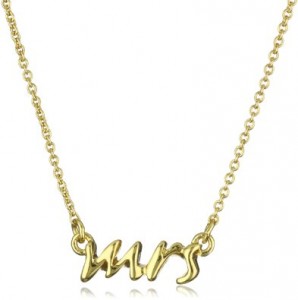 religiously, which had more intrinsic value than any other high fashion item in her closet but it also didn’t assert any social gendering.
religiously, which had more intrinsic value than any other high fashion item in her closet but it also didn’t assert any social gendering.
There’s probably no “Mr.” version of this necklace, but even if there were, it still wouldn’t represent men discriminately based on his relationship status like a “Mrs.” necklace does. Brides and wives need to think about what it means when being called Mrs. Mrs. carries a lot of unfair social construction and identity politics compared to Mr. When a man marries his identity and name does not change based on his new relationship status, but a woman’s does according to name change tradition and that has a lot of sordid historical weight to it.
Want to be treated as an equal, maintain the integrity of your identity without having to redefine it just because you went through a new life stage? Than opt for using Ms. It’s a much stronger statement and from this feminist perspective a much more awesome sentiment to wear around your neck.
To Learn More About Name Change:
VIDEO: Why Do Brides Take Their Husband’s Names?
Why Women Change Their Last Names After Marriage
Wedding Invitation Name Etiquette
The Lucy Stone League: Crusaders for more name equality!
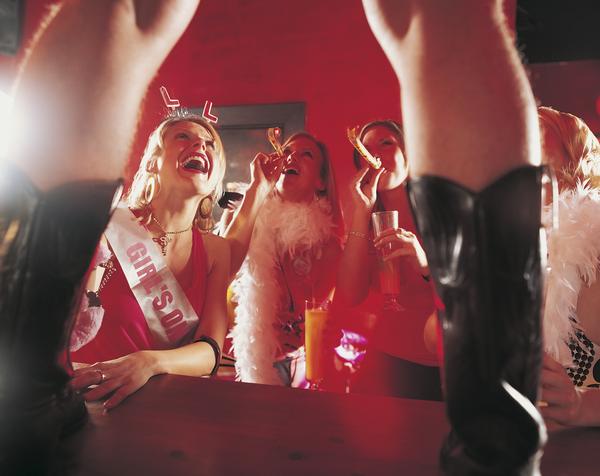

Party Planning: Who’s Booking The Stripper and/or Spa?
The funny thing about wedding book guides is that it suggests the bridesmaid and Maid of Honor  plan and pay for the shower and bachelorette party. The question is – is that really good and fair advice? Fiances are now financially independent, living on their own or cohabitating; gone are the days when brides had to ask mom and dad for a loan or an allowance. If brides have more financial autonomy, if they expect a party in their honor and want to dictate the details of it, shouldn’t they step up as party leader and payer?
plan and pay for the shower and bachelorette party. The question is – is that really good and fair advice? Fiances are now financially independent, living on their own or cohabitating; gone are the days when brides had to ask mom and dad for a loan or an allowance. If brides have more financial autonomy, if they expect a party in their honor and want to dictate the details of it, shouldn’t they step up as party leader and payer?
If the party is given as a surprise with the bride sitting in the passenger planning seat, then it seems more reasonable for the cost to be covered by others. In the grand scheme of things though, at what point does another financial burden begin to break a bridesmaid’s back? She is already paying for a dress, shoes, alterations, gifts, maybe make up and hair and overnight or travel accommodations. Her hangover after a bachelorette party might be the least of her concerns after she gets her credit card bill.
The difficulty, as a bridesmaid, if knowing when and how to say, ‘enough spending’; and as a bride, to understand that there are limitations to everyone’s budget and that her own expectations can’t be met by everyone’s balance sheet. This current wedding party financial etiquette leaves brides and bridesmaids open to awkwardness and trouble. The tradition stems from times when women didn’t have their own cash influx, but this is not the case for modern women. It’s time to update this tradition – to accommodate different budgets, expectations, responsibilities and be open and nonjudgmental about it all.
If the bride is really running the show, she should be open to paying her way. Party guests can also choose to chip in for something special and fun like that lap dance, a nice bottle of champagne or a massage with Sven.[1] Bridesmaids should not have to worry about forgoing certain events or services at the expense of not feeling a part of the group or worry about subsequent ostracism. The party will be much more enjoyable when people aren’t obsessing over whether or not they can afford the next round of shots they feel pressured into reciprocally buying. Bridemaids will feel better knowing they can share their feelings that buying matching penis hats for the bachelorette party is a waste of money, instead of knowing such opinions will only get them dirty looks from other bridesmaids who feel it’s a good investment.
At the end of party, it’s not about who pays that makes a good bridesmaid or bride, but the sincerity given in toasts, the genuine happy smiles captured in pictures and the honest effort executed in making everyone happy. It’s true that it’s the thought that counts, but everyone has different ideas on what’s thoughtful. The problem is current wedding etiquette entangles party expectations and friendship support with financial obligations and that is not a healthy mix.
[1] I hear massages by guy’s name Sven are always good…
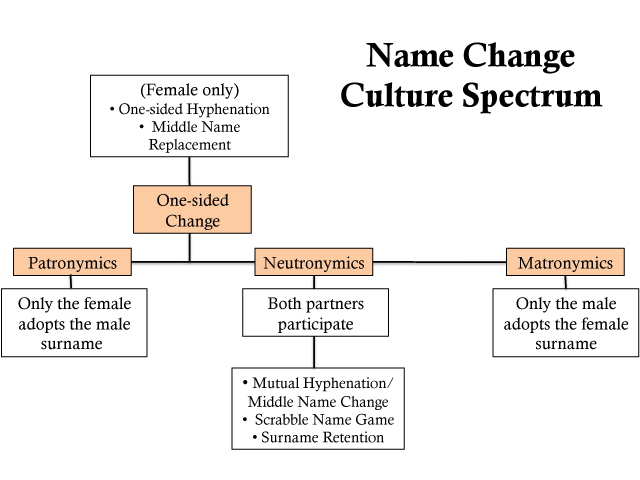

How Well Balanced Is Your Name Change Decision?
I created this ‘Name Change Cultural Spectrum’ for a lecture I gave at Tufts University this spring. I wanted people to understand where their decisions stand in the broader context of equality. For example, a lot of women who retain their surname but also incorporate their new spouse’s name through hyphenation will defend their decision as being progressive or feminist or seemingly more about equality. If you look on the spectrum, that one-sided name change is not as based on equality as we might like to think, especially since men typically do not join women in this one-sided hyphenation.
Also to show that existing name change culture does not encourage equality, I had to invent the term Neutronymics. Neutronymics is the adoption of a new name or combination of names created using the names of married individuals or the retention of separate surnames. It is meant to be a solution to those wishing to participate in neither patronymics nor matronymics and to increase name equality. Mutual hyphenation, the Scrabble Name Game and Surname Retention are all options people are aware of, but had never been grouped before or labeled. Labeling it gives it legitimacy and really puts into perspective the other options that favor one sex over another.
So when it comes time for you to get married and you’re not sure if you’re making the right decision that honors yourself and/or your partner – take a look at the Name Change Culture Spectrum. See where your decision places on the map and you’ll get a better sense as to whether you are helping to buck the dominating patriarchy, are alone in your name change decisions or are making a healthy decision that really promotes equality in your relationship and teaches women to value their name too. And if you’re a lady getting married, don’t forget to make the groom put in the same type of name change consideration you are putting in yourself!
 Why Women Change Their Last Names After Marriage
Why Women Change Their Last Names After Marriage
Wedding Invitation Name Etiquette
The Lucy Stone League: Crusaders for more name equality!
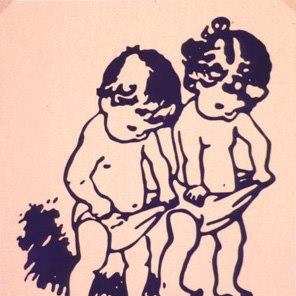

Are You Sexist? Take The Test
“Women — you can’t live with them, and you can’t live without them.” 
‘This male quip captures something essential about the face of sexism: an ambivalence, or doubled-edged way of thinking, in which women are sometimes treated with contempt and sometimes adored.’
‘How can adoration qualify as sexism? To answer this question, you are invited to take the Ambivalent Sexism Inventory and explore the dual nature of prejudice toward women. The inventory takes roughly 5 minutes to complete, and afterward you can compare your level of sexism with the scores received by people from around the world’
The following is an excerpt from UnderstandingPrejudice.org. The test is for both men and women. Take the test by clicking the link and following directions to see how you score. UnderstandingPrejudice.org: Ambivalent Sexism Inventory.
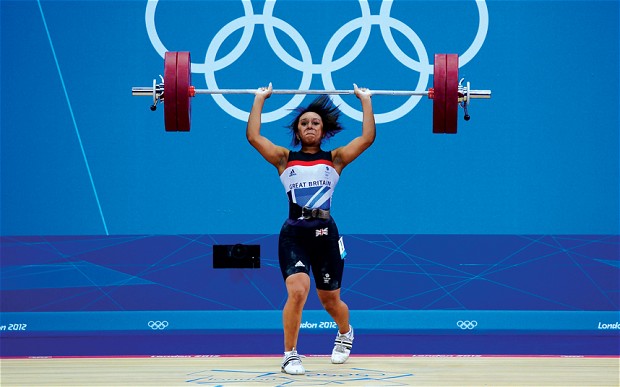

Olympic Athlete Fights Sexism with Witt, Words and The Web
British Olympic weightlifter Zoe Smith, 18 was in a documentary on BBC, 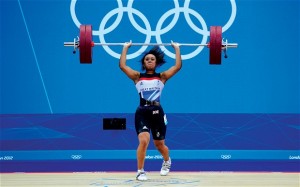 “Girl Power – Going For Gold.” Some Twitter commentators said Smith was more or less too masculine, should be more feminine in order to attract a man and that she should ‘go make her boyfriend a sandwich.’ Smith fired back on her blog, confronting a particular commentator (who apparently couldn’t handle the fight because the username is now disabled) and is being hailed for her smart and strong retort.
“Girl Power – Going For Gold.” Some Twitter commentators said Smith was more or less too masculine, should be more feminine in order to attract a man and that she should ‘go make her boyfriend a sandwich.’ Smith fired back on her blog, confronting a particular commentator (who apparently couldn’t handle the fight because the username is now disabled) and is being hailed for her smart and strong retort.
“We, as any women with an ounce of self-confidence would, prefer our men to be confident enough in themselves to not feel emasculated by the fact that we aren’t weak and feeble.”
The negative comments are a good example of hostile sexism. Hostile sexism is the negative treatment of women because they do not fulfill traditional, feminine gender roles (which is benevolent sexism and this keeps women subservient in traditional feminine gender roles). How to connect this to marriage? Well, marriage is a typical path for women to fulfill traditional feminine gender roles. Exchanges like in this article are an example of how those roles effect other areas women are engaged in, as evidenced in the sexual comments directed at Smith. It’s not necessarily sexism in the Olympics. The strong presence of women in the Olympics encourages lingering sexism in our communities to surface. It is an unfortunate event, but on a positive note it does highlight we, indeed, do not live in a post-feminist society and tells us we still have important work to do.
Women’s weightlifting was introduced at the 2000 Olympics in Sydney. Smith went on to break the British record in the 58kg competition by lifting twice her weight (211kg), but finished 12th out of 19 overall.
To read the article from Feministing.com and many more about sexism in the Olympics click here.
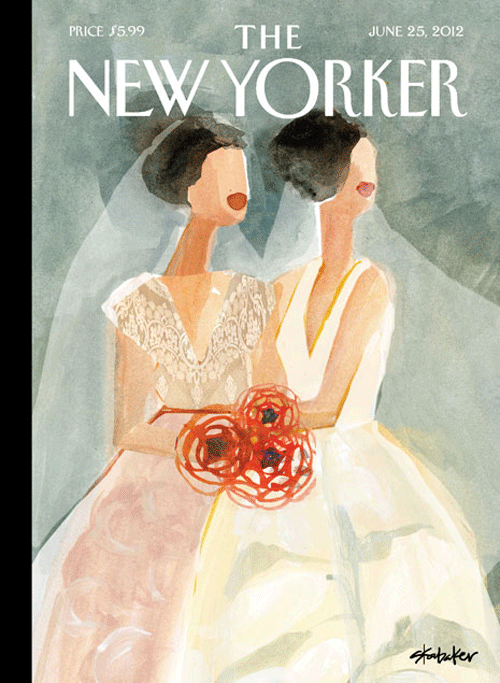

Same-Sex Brides Grace Cover of The New Yorker
The New Yorker’s June 25th cover features two “June Brides,” by the artist Gayle Kabaker’s. 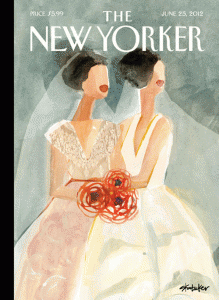 The magazine’s art editor, Françoise Mouly, found the image through her Blown Covers blog. (Click here if you’d like to see the runners up to the Blown Covers wedding contest and click here if you’d like to see my own feminist bride art (no harm in a little self promotion!) It’s unclear if there are any related stories in this week’s magazine, but the fact that that subjects are featured sweetly and beautifully over being portrayed as overtly political is a nice change of pace. When images like that happen it becomes more about capturing life than directly commenting on it (though acceptance of gay marriage is legally lagging any representation is important).
The magazine’s art editor, Françoise Mouly, found the image through her Blown Covers blog. (Click here if you’d like to see the runners up to the Blown Covers wedding contest and click here if you’d like to see my own feminist bride art (no harm in a little self promotion!) It’s unclear if there are any related stories in this week’s magazine, but the fact that that subjects are featured sweetly and beautifully over being portrayed as overtly political is a nice change of pace. When images like that happen it becomes more about capturing life than directly commenting on it (though acceptance of gay marriage is legally lagging any representation is important).
The Kabaker also had some nice points to make about her career and approaching the subject to kids and adults, “I live in the Berkshires, so I do almost all of my work online,” Kabaker said. “It’s a big deal, getting on the cover. We’ve been getting the magazine forever—it comes in and goes straight on the kitchen table. We talk about the cover with my son, who’s seventeen, and my daughter, who’s twenty-three. ‘What do you think it means?’ It’s a conversation. And we all read it, dog-ear it, and leave it on the table for the next person to pick up.”


Hey Sister, Let’s Talk About Sex.
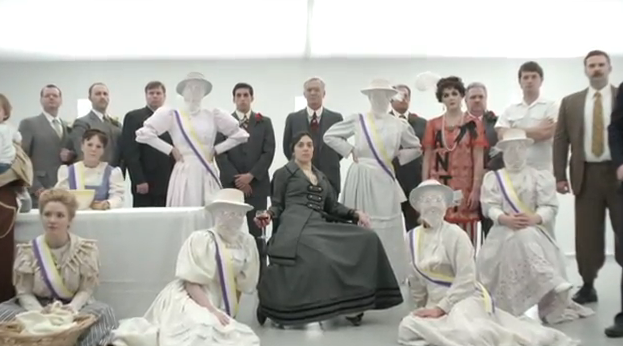

Women’s Suffrage’s Rendition of Lady Gaga’s Bad Romance
Mary Poppin’s “Give Women the Vote” song just joined the 21st century through a rendition of Lady Gaga’s Bad Romance. I’m thrilled that there are slowly more and more independent short films focusing on women’s issues and done in a funny way. It’s marvelous that producers, writers and directors can take a serious topic and approach it with fun and humor. I believe those tactics alone represent a new age of feminism (ahem, fourth wave feminism) that no longer isolates the objectors and objected but critically addresses a topic with less aggression so the message can be easily, effectively and enjoyably understood by all. Brava. I particularly cracked up at the line, “We just want to wear pants.” Women may have gotten the vote in 1920 but contemporary reinterpretations reminds us modern gals that there is a lot to be thankful for. If you’re into 4th Wave feminist media, check out this classic: Jane Austen’s Fight Club.
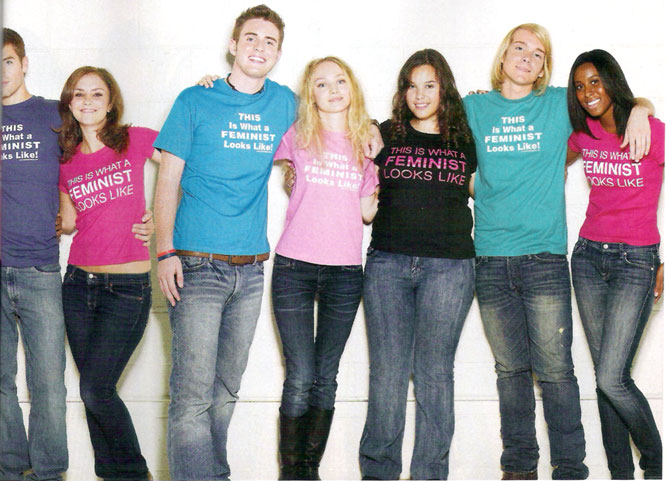

“This Is What a Feminist Looks Like”
“Acknowledging you’re a feminist is an act of gratitude for the people who went before and fought for the rights you are now enjoying.”
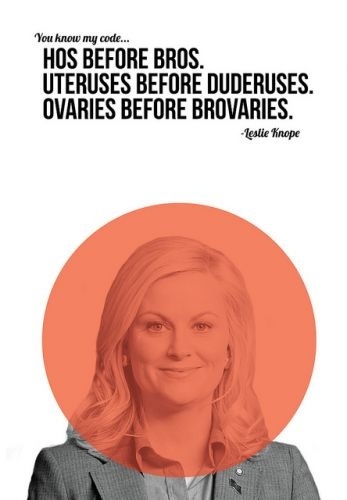

2 Must-See Video Parodies of the Birth Control Congressional Hearing Session
Funny videos of the birth control Congressional hearing debacle. Thought it would be worth a share, a chuckle and a tisk-tisk over the whole birth control debate issue.
SNL’s Amy Pohler and Seth Meyer in “REALLY?!”
Stephen Colbert’s Catholics and Birth Control


Happy President’s Day to All The Past Female Presidents! Oh Wait, There Are None.
Between Republican Presidential Candidate’s Newt Gingrich’s delightful views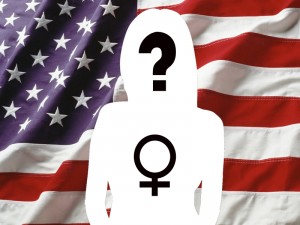 and treatment of women, people attacking Obama on his legislation protecting women’s reproductive rights, the Susan G Komen vs. Planned Parenthood debacle, Sarah Palin, Michelle Bachmann and now the blatant exclusive male debate over women’s birth control, I get a really warm, fuzzy and inviting feeling when it comes to women’s place in politics.
and treatment of women, people attacking Obama on his legislation protecting women’s reproductive rights, the Susan G Komen vs. Planned Parenthood debacle, Sarah Palin, Michelle Bachmann and now the blatant exclusive male debate over women’s birth control, I get a really warm, fuzzy and inviting feeling when it comes to women’s place in politics.
So when I see the countless people celebrating this President’s Day weekend, I’m only compelled to celebrate the Monday I’ve been given off. There’s little cause for me to celebrate. Out of 44 presidents (and 55 available terms), not one has been a woman. A few have come (sorta) close though. In 1872, Victoria Woodhull was the first woman to run for president. Back then women did not even have the right to vote in federal elections yet and wouldn’t until 1920 – 52 years later. The female candidates between now and then have been few and far in between with no successful ones. A 2009 poll revealed only 55 percent think America is now ready for a woman president. Despite Americans seeing themselves as a world leader, we actually rank 90th in the number of women in our national legislature. And given the US’s history of world politics we’d be embarrassed to realize what other countries are ahead of us such as Cuba (ranked 6th) and Afghanistan (30th). The figures are no more encouraging for other political positions. Overall, for dominating 51% of the total US population, women only account for 17% of the seats in Congress. And our numbers are declining. At this rate women will not reach parity for 500 years!
I’m happy to think that a lot of this birth control debate and the blatant misogyny we see occurring in our reproductive fate is encouraging women to speak up after too much silence. I haven’t seen such overwhelming support for women since the 1990s. The personal may be political, but in the public realm most of us have been keeping the personal private and that is clearly dangerous. We’ve naively assumed that the personal will be protected. Without our direct involvement in our own fate we can’t assume the progress of women will continue. Below is a list of where women in positions of political leadership currently stand. The statistics are scary.
On this President’s weekend, I encourage women to think about their own involvement in the political process. Are you voting for candidates that believe in women, that will fight for ALL women and include women on their own offices? What is your own involvement in politics – instead of being disgruntled at the our current state of affairs, why aren’t you throwing your hat into the ring? Many of us grew up in a generation that taught women can be anything they put their minds too, yet few of us have followed up on that idea. We should recognize we hold all the same skill sets, will and strength to run and hold positions of leadership as any other candidate. Why aren’t we more involved then?
Sorry to copy straight from the pages of the WCF Foundation, but I found the statistics so compelling, eye opening and straight forward that it just seemed better to give them a tip of the hat on their work and a little plug for their non-profit (Click here to donate to their “She Should Run” Campaign). Here is their mission statement: “WCF is dedicated to helping women build the skills and infrastructure they need to become more effective leaders in public life. WCF Foundation conducts action-oriented research and pilots targeted programs that prepare women to become more politically active, increase their engagement in key democratic processes, and ready them for public leadership roles. At WCF Foundation, we not only identify barriers to women’s political equality – we find solutions.” I would also like to point out The White House Project that encourages women’s leadership in all sectors. Their mantra of “Add Women, Change Everything,” speaks exactly to the power of including women.
FAST FACTS ABOUT WOMEN IN POLITICS
Where We Are: 2010 Election Update
For the first time since 1987, the United States made no progress in electing more women to Congress.
- Democrats lost control of the House of Representatives, bringing an end to Represenative Nancy Pelosi’s historic leadership role as the first woman Speaker of the House. (Source)
- 3 women committee chairs—Rep. Louise Slaughter on the Rules Committee, Rep. Nydia Velazquez on the Small Business Committee, and Rep. Zoe Lofgren on the Standards of Official Conduct Committee—will also lose their leadership positions as the Democrats become the minority party in the House. (Source)
- The number of women serving in the Senate will remain level at 17. The number of women serving in the House of Representatives will drop for the first time since 1979. (Source)
- 10 incumbent Democratic Congresswomen lost their seats. No Republican women in the House lost their seats. One incumbent woman Senator lost her seat. (Source)
A few pieces of good news in an otherwise dreary election cycle for women:
- Hawaii elected women to both of its U.S. House seats, making it the first state with more than one congressional district to have all-female representation in the House of Representatives. (Source)
- Five women of color were elected to the House of Representatives, including WCF-Endorsed Terri Sewell, who will become Alabama’s first African-American Congresswoman. (Source)
Women are still under-represented at all levels of government.
- Women hold only 17% of the seats in Congress. (Source)
- Only 22% of all statewide elective executive office positions are currently held by women. (Source)
- State Legislatures are only 24% women. (Source)
- Only 6 out of 50 states have a female governor. (Source)
- The United States trails behind much of the world—ranking 90th in the number of women in our national legislature. (*Note: The U.S. is listed as 73rd, but after accounting for tied rankings of other countries, the ranking for the U.S. is 90th. Source)
- On average, male cabinet appointees outnumber women cabinet appointees in our states by a ratio of 2 to 1. (Source)
- 50% less women than men consider of running for office. Of those, 30% less actually run, with only a fraction seeking higher office. (Lawless, Jennifer and Richard L Fox. It Takes a Candidate: Why Women Don’t Run for Office. New York: Cambridge UP, 2005.)
- Women constituted 54% of voters in the 2008 elections, but only 24% of state legislators. (Source)
- Women of color represent only 4% of Congress and 23% of women Members of Congress. (Source)
Facts on women of color in elective office
- Of the 89 women serving in the 112th US Congress, 24 or 27% are women of color. (Source)
- From those, 13 are African American, 7 are Latina, 4 are Asian American and none in Native American.(Source)
- Of the 68 women serving in statewide elective executive offices 10, or 14.7% are women of color. (Source)
- Women of color constitute 4.7% of the 7,382 state legislators. (Source)
Why We’re Here
Parties can make or break a woman candidate:
- About one-third of women say that someone tried to discourage them from running—most often an officeholder or political party official. (Source)
- Women are more likely than men to say that party support was very important to their decision to run. Women are also more likely to cite their party, rather than an organization, as the most influential source of encouragement for their candidacies. (Source)
Gender Stereotypes still play a role:
- Both male and female voters are much more judgmental about the appearance and style of a female candidate than of a male candidate. Although all candidates are judged on these attributes to some degree, women have a more difficult challenge in convincing voters to judge them on their merits rather than on their appearance.(Source)
- If a woman candidate is unmarried, both male and female voters perceive her as less likely to share their own family values. (Source)
Money Counts:
- The top three women who enjoyed incumbency advantage in 2008 raised approximately $33 million—$16 million less than the total for the top three male incumbents. (Source)
- In highly competitive races, the gap between the top-raising female and male U.S. Senate challengers in 2008 was almost $14 million (Senator Kay Hagan raised $8.5 million and Al Franken $22.5 million), which is $8 million more than the difference in 2006. (Source)
- Male U.S. House incumbents raised on average $196,281 more than women in 2008. Only five of the 1303 candidates relied on women for more than half their contributions. (Source)
- Most women believe that it is harder for female candidates to raise money than male candidates, while the overwhelming majority of men believe it is equally hard for both men and women. (Source)
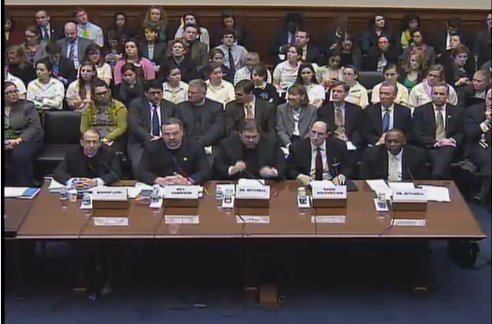

Opinion: On Denying Birth Control Coverage and Not Inviting Women to the Table
This news of a Republican panel of five men and NO women convening to discuss denying birth control coverage struck a sour chord. It saddens me because I don’t want men dictating how I treat my body, and we women are not second-class citizens who are unable to think for ourselves. (One woman did show up to testify, but was shown the door.) But it also saddens me because denying this coverage commits an entire sector of our population to an endless cycle of poverty. It’s amazing how making a little pill (or other more reliable options) available to all, regardless of income, can make a difference in the educational level and the standard of living of our entire country.
Feminist Meme
I was looking at all the “What People Think I Do/What I Really Do” memes and I thought “WTF!?” Where’s the one on feminists? I got to about page 10 and couldn’t find one, so I decided to take matters in my own Internet hands and contribute to the mass, pop culture phenomenon that we know as memes. Given that we have our fair share of unfair stereotypes is seemed like a perfect fit to create one and set the record straight on who we feminists really are. Enjoy, lol.


Putting the “V” in Valentine’s Day
When it comes to celebrating Valentine’s Day, we seek to spend it with those we love and  shower them with all the accoutrements a Hallmark Valentine’s can bestow. What about spending Valentine’s Day in a non-commercial way? What if you could honor the women in your life by participating in something that seeks to support and empower them? What if you spent this Valentine’s Day learning how to appreciate yourself?
shower them with all the accoutrements a Hallmark Valentine’s can bestow. What about spending Valentine’s Day in a non-commercial way? What if you could honor the women in your life by participating in something that seeks to support and empower them? What if you spent this Valentine’s Day learning how to appreciate yourself?
Hold the Happy 39th ‘Roe vs. Wade’, Political Anti-Abortion Talk Rampant
As an artist, I’m usually caught in a conversation with patrons over the stories related to specific pieces of work. A few years ago, I found myself talking to a 50 or so year-old woman about my photo of Havana, Cuba. Both having traveled there we positively swapped stories of the people, the climate and the culture. Any American in Havana is rare these days, I was lucky enough to travel down there legally in 2002 on an academic visa while studying abroad (Fidel even spoke to us at an assembly and then he threw a party for us at a compound). So I was curious why this other American was there.
“Oh,” she nonchalantly replied, “I was there in the 60s to get an abortion.”
Having spent all but five minutes with this woman, I was taken aback by her candidness. I didn’t press the story much further, but it told me 1. at the time abortion was illegal in the US and 2. her presence in Cuba was probably even more illegal. So dire her need for an abortion, she sought the help from one of our countries most notorious enemies because the service was legal there and because it would be performed safely by a surgeon (they do have excellent healthcare there). Making abortion illegal creates a lot of unsafe procedures that put women’s lives at risk. And I have to admit I had no clue about home-abortion kits until I watched Revolutionary Road with Kate Winslet. Hollywood drama aside, no health class or any other source had bothered to inform me as to what life was like before Roe vs. Wade. (Read Mother Jones 2004 “The Way It Was” by Eleanor Cooney for a really good account of pre-Roe).To get an idea on current global statistics when abortions are illegal, “Nearly half of all abortions worldwide are unsafe, and nearly all unsafe abortions occur in developing countries. In the developing world, 56% of all abortions are unsafe, compared with 6% in the developed world,” [Guttmacher Institure].
Roe vs. Wade just celebrated its 39th birthday but it’s still under contention. As the 2012 presidential elections come closer, the politicians’ stances on topics such as abortion come into the spotlight. GOP candidate Rick Santorum opposes abortion in the strictest sense, even in cases of rape and incest. He claims his stance is not religious based, but in a recent interview with CNN’s Piers Morgan he eventually mentioned the big “G.” He argued a woman should, ” ‘accept this horribly created’ baby, because it was still a gift from God, even if given in a “broken” way.” Santorum was also part of the “Partial Birth Abortion Ban bill” passed by Bush #2 in 2003. Characterized as almost zealous in his anti-abortion lobbying and protection of human life, he somehow finds it reasonable to support the death penalty in absolute cases of guilt. Seems his belief in the value of life is conditional. He is just one of the hour GOP candidates that believe Roe vs. Wade should be reversed. Even Michelle Bachmann is claiming that abortion will be made illegal after the 2012 elections.
While it is not hard to understand how religion has influenced these politicians’ abortion views, the Guttmacher Institute release worldwide abortion statistics that suggests that making abortion illegal actually increases the rate of abortions. If the GOP candidates using reasonable 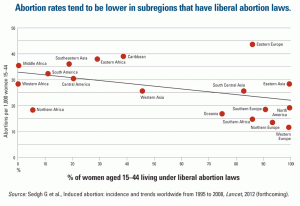 deduction skills, fulfilling their goal of making abortion illegal would not solve their problem at all. In fact, between 1995 and 2008 abortion rates have lowered in developed nations, which can be explained by better access to sex education, general education and access to healthcare. And countries with more liberal laws on abortion actually have lower abortion rates.
deduction skills, fulfilling their goal of making abortion illegal would not solve their problem at all. In fact, between 1995 and 2008 abortion rates have lowered in developed nations, which can be explained by better access to sex education, general education and access to healthcare. And countries with more liberal laws on abortion actually have lower abortion rates.
Obama had this to opposing view to share, “As we mark the 39th anniversary of Roe v. Wade, we must remember that this Supreme Court decision not only protects a woman’s health and reproductive freedom, but also affirms a broader principle: that government should not intrude on private family matters. I remain committed to protecting a woman’s right to choose and this fundamental constitutional right.” Santorum accused Obama of being “radical and extreme” when it came to women’s reproductive births.
I remember an interview with Sarah Palin around the 2008 elections talking about how she was so happy that Bristol chose to keep her baby and made the right decision in her book. The reporter nailed Ms. Palin, anti-abortion supporter, on her choice of words, i.e. “chose.” The irony of the comment was not surprisingly lost on Palin, which goes to show that no matter what your view is, it’s the right to choose that makes a difference. It’s not a really happy birthday for Roe vs. Wade if people are at great odds almost 40 years later on the morality of the issue. We have yet to understand that personal beliefs should not dictate public direction. My personal choice when it comes to my body is my own, but I should have the right to have access to any possible options and not have someone predetermine what they think is the right course for me. Only I can decide that.
Rick Santorum On Opposition To Abortion In Cases Of Rape: ‘Make The Best Out Of A Bad Situation’.
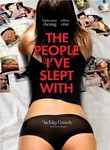

FB Movie Review: The People I’ve Slept With
![]() The People I’ve Slept With (2009) – We’ve seen many a male character own the spoils
The People I’ve Slept With (2009) – We’ve seen many a male character own the spoils  of an active sex life, and when the main character Juliet pulls a Samantha Jones it’s exciting to see a female character finally own her sexuality on par with a man and without social ramifications. Except then she gets pregnant and has no clue who the baby-daddy is. Suddenly, Juliet tailspins into an emotionally abusive, self-reflective state of how could she have been so slutty and irresponsible? Not once does the movie turn the table onto the men who are equally responsible for the embryo and it reverts to a pro-life stance and the age mindset that a woman can’t be sexually free without being promiscuous and irresponsible. BS. (Subject: Sex, Pregnancy, Double Standards, Relationships) Director: Quentin Lee
of an active sex life, and when the main character Juliet pulls a Samantha Jones it’s exciting to see a female character finally own her sexuality on par with a man and without social ramifications. Except then she gets pregnant and has no clue who the baby-daddy is. Suddenly, Juliet tailspins into an emotionally abusive, self-reflective state of how could she have been so slutty and irresponsible? Not once does the movie turn the table onto the men who are equally responsible for the embryo and it reverts to a pro-life stance and the age mindset that a woman can’t be sexually free without being promiscuous and irresponsible. BS. (Subject: Sex, Pregnancy, Double Standards, Relationships) Director: Quentin Lee


Acid Throwing and Forced Marriage Now Illegal in Pakistan


Hillary Clinton United Nations Speech: ‘Free and Equal in Dignity and Rights’
An amazingly powerful speech that should be shared and heeded. Hillary Clinton speaks to the United Nations about how LGBT rights are human rights. Clinton explained that LGBT legitimacy does not differ from the civil rights issues that other groups experienced throughout history. She stresses that to make sure LGBT members are not discriminated or abused we all need to recognize the need to accept and protect – that they should be as free as the rest of us to live in peace, expression and lifestyle without condition.
“It proclaims a simple, powerful idea: All human beings are born free and equal in dignity and rights. And with the declaration, it was made clear that rights are not conferred by government; they are the birthright of all people. It does not matter what country we live in, who our leaders are, or even who we are. Because we are human, we therefore have rights. And because we have rights, governments are bound to protect them.”
“I am talking about gay, lesbian, bisexual, and transgender people, human beings born free and given bestowed equality and dignity, who have a right to claim that, which is now one of the remaining human rights challenges of our time. I speak about this subject knowing that my own country’s record on human rights for gay people is far from perfect. Until 2003, it was still a crime in parts of our country. Many LGBT Americans have endured violence and harassment in their own lives, and for some, including many young people, bullying and exclusion are daily experiences. So we, like all nations, have more work to do to protect human rights at home.”
“It is violation of human rights when people are beaten or killed because of their sexual orientation, or because they do not conform to cultural norms about how men and women should look or behave. It is a violation of human rights when governments declare it illegal to be gay, or allow those who harm gay people to go unpunished. It is a violation of human rights when lesbian or transgendered women are subjected to so-called corrective rape, or forcibly subjected to hormone treatments, or when people are murdered after public calls for violence toward gays, or when they are forced to flee their nations and seek asylum in other lands to save their lives. And it is a violation of human rights when life-saving care is withheld from people because they are gay, or equal access to justice is denied to people because they are gay, or public spaces are out of bounds to people because they are gay. No matter what we look like, where we come from, or who we are, we are all equally entitled to our human rights and dignity.”
Click to here to read full transcript.
More Feminist Bride articles related to gay rights:
A Testimonial on the Families Gay Marriages Builds
Diane Savino On NY Gay Marriage Bill: ‘We Have Nothing To Fear From Love And Commitment’ (VIDEO)
Petition Asks Bert And Ernie To Get Married On Sesame Street
Michele Bachmann Gets “Flippy-Floppy” on Addressing Gay Rights Debate
Military gay couples still won’t enjoy benefits
NJ Has A New Situation for Gay Marriage Rights
Woman’s Pro-Gay Shirt Deemed Offensive at Dollywood, Dolly Parton’s Theme Park
Miley Cyrus Inks Wrong Symbol In Support Of Gay Marriage
Maryland’s Gov. Martin O’Malley Pushes for Gay-Marriage
Hair’ Celebrates Same-Sex Marriage With On-Stage Weddings
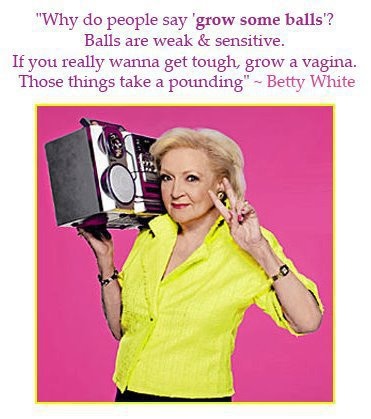

Oh Betty White – You’re Hilarious!
So I found this through a Facebook site called “A Girl’s Guide to Taking over The World.” 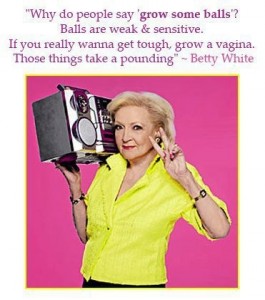 They post a lot of images of women, art, feminist issues, etc. It’s very pop, a little punk, and certainly saucy! I found a recent picture they posted hilarious and I just had to share! It bugs me that people use the saying, “You throw like a girl,” as an insult. When some girls can throw just as well as anyone. We should be proud of what we got, per Betty’s quote she seems to know that too!
They post a lot of images of women, art, feminist issues, etc. It’s very pop, a little punk, and certainly saucy! I found a recent picture they posted hilarious and I just had to share! It bugs me that people use the saying, “You throw like a girl,” as an insult. When some girls can throw just as well as anyone. We should be proud of what we got, per Betty’s quote she seems to know that too!
And if you didn’t like Betty White enough already, the golden gal is also in favor of gay marriage as she mentioned in a Parade Magazine Interview: “I don’t care who anybody sleeps with. If a couple has been together all that time—and there are gay relationships that are more solid than some heterosexual ones—I think it’s fine if they want to get married. I don’t know how people can get so anti-something. Mind your own business, take care of your affairs, and don’t worry about other people so much.” Go Betty!
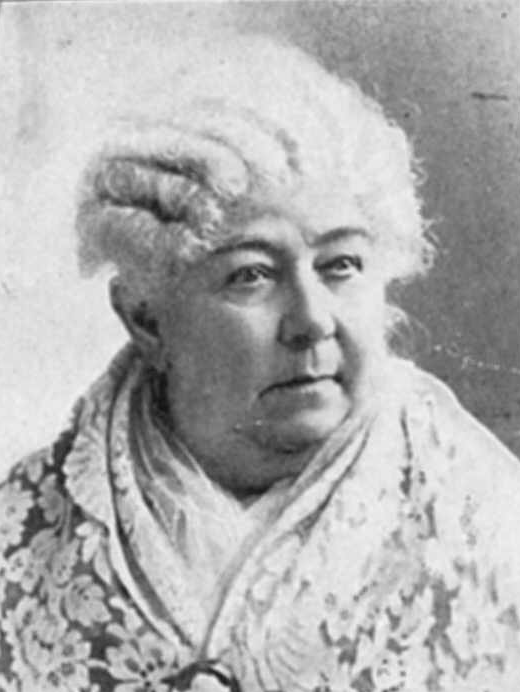

Happy 200th Birthday Elizabeth Cady Stanton!
Happy Birthday Elizabeth Cady Stanton. You are 200 years young! Born on 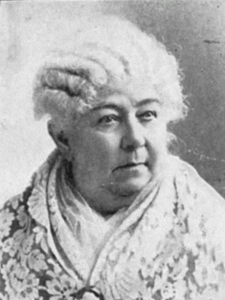 November 12, 1815, you were the mother of the suffragist movement and a pioneer for all women’s rights. You’re great but I have to wonder what you spent all your birthday wishes on cuz we’re still fighting for some of the same damn things you were!
November 12, 1815, you were the mother of the suffragist movement and a pioneer for all women’s rights. You’re great but I have to wonder what you spent all your birthday wishes on cuz we’re still fighting for some of the same damn things you were!
Miss Representation – OFFICIAL MOVIE TRAILER
It’s important to think about how women in relationships and in marriage are portrayed too! Wives are often pitched as nags and ragged or sexy trophies. Brides are crazy, weight obsessed, vain control freaks. Miss Representation – OFFICIAL MOVIE TRAILER – Sundance Film Festival 2011 – YouTube.
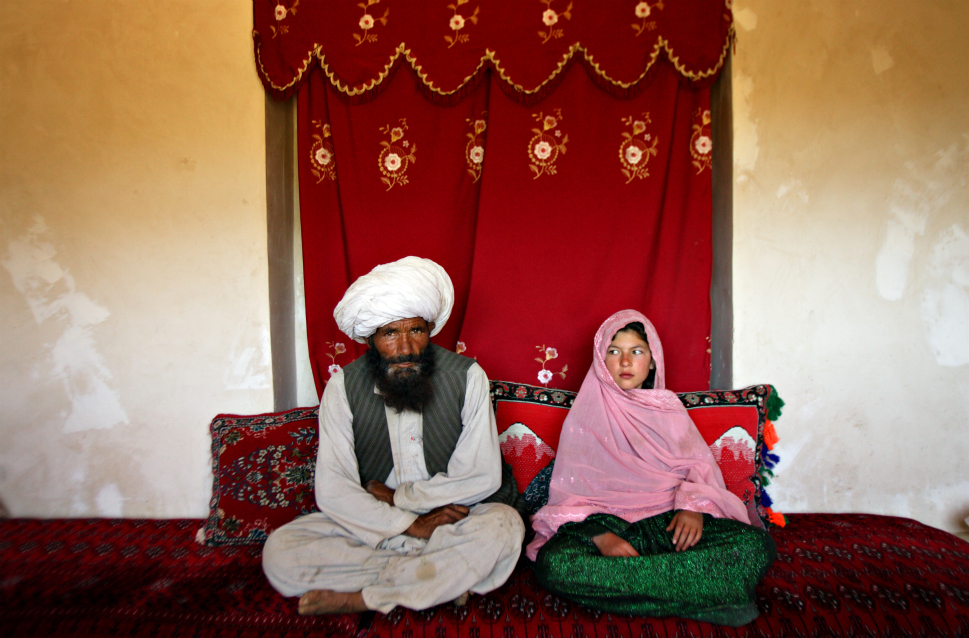

The Young and the Betrothed – Child Brides
While many of us fret over unimportant issues related to our own weddings or believe that our freedom of choice on how to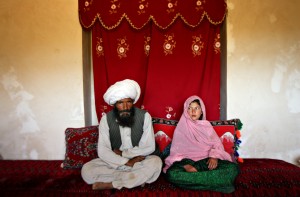 marry is a sign of progress, we must remind ourselves that equality and humanity in marriage is seldom enjoyed in other parts of the world. From the denial of gay marriage to the following issue of child bride, we must remember that many existing forms of marriage violate basic human rights. It is up to us who are privileged enough to enjoy healthier forms of marriage to not turn our backs on those who still need help.
marry is a sign of progress, we must remind ourselves that equality and humanity in marriage is seldom enjoyed in other parts of the world. From the denial of gay marriage to the following issue of child bride, we must remember that many existing forms of marriage violate basic human rights. It is up to us who are privileged enough to enjoy healthier forms of marriage to not turn our backs on those who still need help.
In Honor of Women’s Equality Day & The 19th Amendment
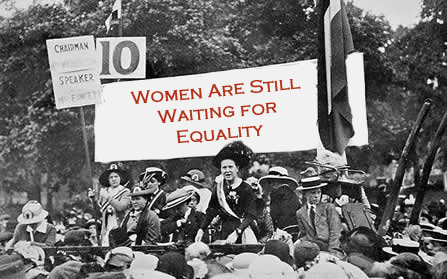

Happy Women’s Equality Day 2013: Don’t Pop The Champagne Just Yet, There’s More Work to Do
On August 18th, women celebrated the ratification of the 19th amendment in 1920 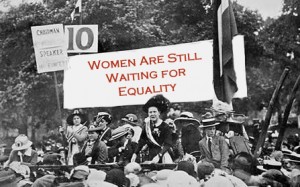 stating that is is unlawful for any United States citizen to be denied the right to vote based on sex. Women have been enjoying the right to vote for 91 years. And today, women are celebrating Women’s Equality Day, which honors not only the 1920 amendment, but also “calls attention to women’s continuing efforts toward full equality.” But don’t pop that champagne just yet, we haven’t accomplished full equality yet.
stating that is is unlawful for any United States citizen to be denied the right to vote based on sex. Women have been enjoying the right to vote for 91 years. And today, women are celebrating Women’s Equality Day, which honors not only the 1920 amendment, but also “calls attention to women’s continuing efforts toward full equality.” But don’t pop that champagne just yet, we haven’t accomplished full equality yet.


Time to Get Hysterical over New Women’s Movie, “Hysteria”
Ah, I can’t wait to see this! And I can’t wait to write all about it, stay tuned.
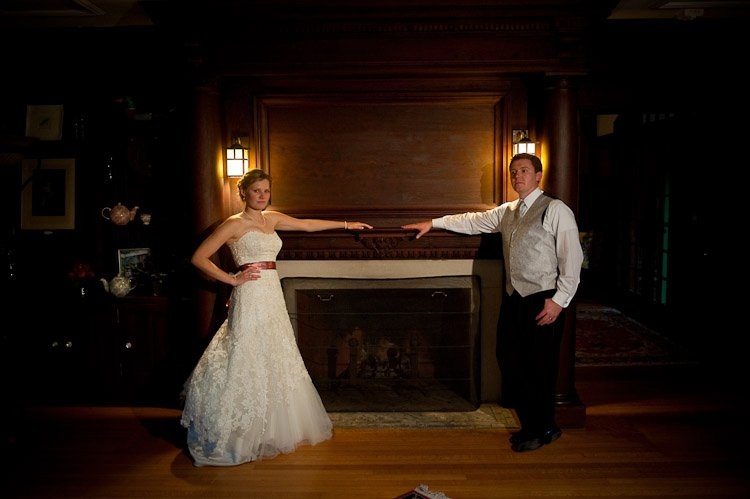

Why Women Change Their Last Names After Marriage
As The Feminist Bride this topic is the most distressing to me. After researching all wedding 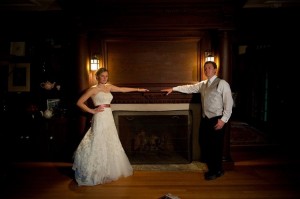 traditions there are three that earn the top obsolete, sexist and promoting inequality – engagement rings, bridal showers and name change. Now, women are starting to understand that third-wave feminism is about choice, but I have to say that when it comes to name change it isn’t an educated one.
traditions there are three that earn the top obsolete, sexist and promoting inequality – engagement rings, bridal showers and name change. Now, women are starting to understand that third-wave feminism is about choice, but I have to say that when it comes to name change it isn’t an educated one.
There are three reasons why the tradition of women adopting their spouses names exists.
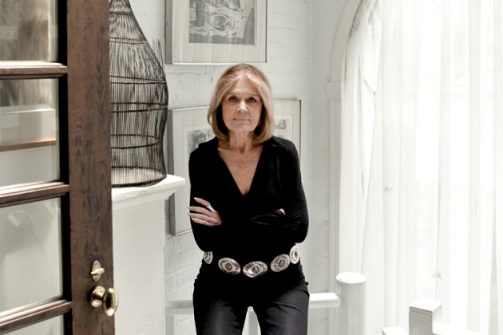

Gloria Steinem: The Future Fight for Women’s Rights
Whether or not you’re a feminist, you should know the name “Gloria Steinem.”  Even if you are a woman and think you don’t agree with feminist politics, your respect is still needed. Feminists, like Steinem, fought for the rights for you have to disagree with them. That thanks, however, is often never said.
Even if you are a woman and think you don’t agree with feminist politics, your respect is still needed. Feminists, like Steinem, fought for the rights for you have to disagree with them. That thanks, however, is often never said.
HBO is airing a documentary on the Ms. magazine founder, Gloria Steinem: In Her Own Words, that explores her early years to her ones as the face of feminism. It airs August 15th.
The Colbert Report – Women’s Health-Nazi Plan
It’s only a matter of time before colbert signs up for the slut walk, popping birth control pills like they’re pez. Free birth control will wipe out the American race and instantly turn daughters into wanton harlots with insatiable sexual appetites.
The Colbert Report
Feds Order Insurers To Cover Birth Control Free Of Charge To Women
Everyone’s got an opinion on how us women should treat our uteruses. With a recent push by the fed to make insurers to cover birth control, the most widely used prescription drug by women 18 -44, most women are pretty happy. Catholic institutions and other conservative religious groups that provide health insurance, however, are not. They are looking for religious exemption, except the concern is that this would exclude female non-followers who work or access benefits under these institutions. An umbrella approach to religious exemption doesn’t work for the fed and Department of Health & Human Services who want to make sure all women get the fair services they need and want, especially since some of the free services are not just pregnancy prevention medication. For now though, it’s a step in the right direction and further away from the legacy Comstock laws women have been plagued by for over a century.
women should treat our uteruses. With a recent push by the fed to make insurers to cover birth control, the most widely used prescription drug by women 18 -44, most women are pretty happy. Catholic institutions and other conservative religious groups that provide health insurance, however, are not. They are looking for religious exemption, except the concern is that this would exclude female non-followers who work or access benefits under these institutions. An umbrella approach to religious exemption doesn’t work for the fed and Department of Health & Human Services who want to make sure all women get the fair services they need and want, especially since some of the free services are not just pregnancy prevention medication. For now though, it’s a step in the right direction and further away from the legacy Comstock laws women have been plagued by for over a century.
For More: Feds Order Insurers To Cover Birth Control Free Of Charge To Women : Shots – Health Blog : NPR.
Dating Website Creates New Post-College Profession – Sugar Baby
A website called SeekingArrangements is causing a huge stir because it hooks up college kids, down on their luck economically and professionally and in desperate need of some student loan assistance, with wealthy sugar daddies. Since the site acts merely as a facilitator and connection to these two people and because there is no talk or money negotiation on the site (that is an arrangement left to the couple once they meet) the site is walking a barely legal fine line.
college kids, down on their luck economically and professionally and in desperate need of some student loan assistance, with wealthy sugar daddies. Since the site acts merely as a facilitator and connection to these two people and because there is no talk or money negotiation on the site (that is an arrangement left to the couple once they meet) the site is walking a barely legal fine line.
Wedding Contract by Males and Dowry Dispute Leaves Bride in Poverty
Yes, Virginia [Woolf] dowries so still exist! The writer who insisted women 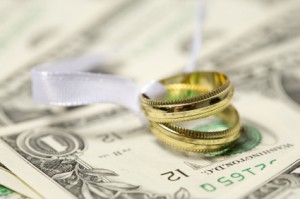 must have their own income would be upset about this law decision and the culture leading up to it in all capacities. Our Canadian neighbor’s B.C. Supreme Court turned down a petition for payment of a dowry under a marriage contract authorized in a sharia court of Amman, Jordan. Seems that the dowry and sharia were contracted by the bride’s uncle, leaving her to live in poverty after her divorce.
must have their own income would be upset about this law decision and the culture leading up to it in all capacities. Our Canadian neighbor’s B.C. Supreme Court turned down a petition for payment of a dowry under a marriage contract authorized in a sharia court of Amman, Jordan. Seems that the dowry and sharia were contracted by the bride’s uncle, leaving her to live in poverty after her divorce.

